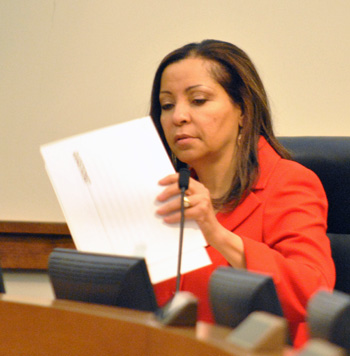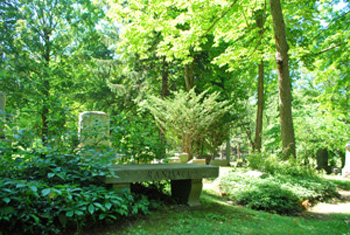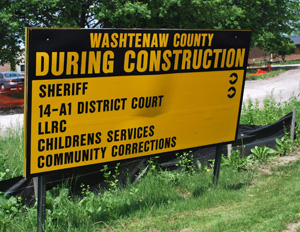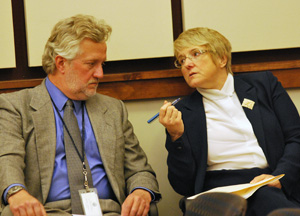Washtenaw County board of commissioners working session (Feb. 2, 2012): Commissioners got a preview from county administrator Verna McDaniel about plans for more restructuring of Washtenaw County operations, in the wake of 117 retirements at the end of 2011 and an ongoing need to cut costs.

Washtenaw County administrator Verna McDaniel. (Photos by the writer)
McDaniel is asking departments to explore a “continuum of opportunities,” from cooperation on one end of the spectrum, to consolidation on the other end. As an example, she noted that the recent 911 dispatch consolidation between the city of Ann Arbor and the Washtenaw County sheriff’s office – an agreement at the county board approved at its Jan. 18, 2012 meeting – began as cooperation, when county dispatchers co-located with Ann Arbor’s operations.
As an initial step, at the board’s Feb. 15 meeting McDaniel will be asking for approval to restructure support services in administration, finance, information technology and facilities management. The changes entail creating a new “cross-lateral” team of four current senior managers, and putting two positions – including the job of deputy county administrator – on “hold vacant” status. Another nine positions will be eliminated, while eight jobs will be created. The restructuring will result in a net reduction of three full-time jobs, and estimated annual savings of $326,422.
Commissioners were generally supportive of her proposal, though some cautioned against creating the expectation that the county can provide the same or a better level of services with reduced resources. The county is facing projected deficits of $11.6 million in 2014 and $14.7 million in 2015.
Also at the Feb. 2 working session, board chair Conan Smith gave an update on negotiations with the Humane Society of Huron Valley, saying he hopes to bring an agreement for board approval at their Feb. 15 meeting. The contract would cover animal control services for the remainder of 2012, with the intent of working toward a longer-term agreement for the coming years. The county plans to ask local municipalities that have animal control ordinances – including Ann Arbor and Ypsilanti Township – to help pay for services provided under contract with HSHV.
The board also got a brief update on the $1.3 million in renovations at the downtown county courthouse. The project, which started early last year when Ann Arbor’s 15th District Court vacated the courthouse to move to the city’s new Justice Center, will be wrapping up in mid-March.
The working session included an agenda briefing for the Feb. 15 meeting, but some commissioners expressed discontent at the new format, which had been implemented earlier this year. Wes Prater suggested that if the briefings do not include time for commissioners to ask questions, then the information might as well be emailed to them instead. “I believe all of us can read,” he said.
[Full Story]








